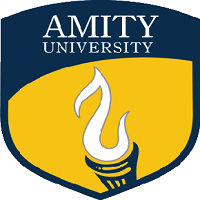VIT Bhopal University | M.Tech Admissions 2025
M.Tech admissions open @ VIT Bhopal University | Highest CTC 52 LPA | Apply now
Best GATE Coaching Institutes in Delhi- The Graduate Aptitude Test in Engineering is a computer-based, national-level standardised exam in India. The GATE exam is conducted to assess the knowledge of various engineering and science subjects among undergraduate students. The exam is held at eight zones across India. The GATE exam will be conducted in online mode, with 65 objective-type questions in the paper. The duration of the GATE exam will be 3 hours. The authority will conduct the GATE 2025 exam on February 1, 2, 14 & 15, 2025. GATE registration 2025 will be commenced on August 28. Candidates are recommended to start their preparation in their second year of college, using the proper resources and direction, due to the technical and difficult nature of the work.
Latest- GATE Syllabus | GATE Exam Pattern | GATE Question Paper

GATE is one of the most competitive exams as millions of aspiring students take this exam from all over the world. Given below is a list of some of the top GATE coaching institutes situated in India with several centres-
Institute Name | Estimated Fees (INR) |
|---|---|
| Made Easy | 50,000 – 2,00,000 |
| GATE Coach | 70,000 – 1,50,000 |
| IES GATE Coaching | 60,000 – 1,40,000 |
| Engineers Academy | 80,000 – 1,60,000 |
| ACE Engineering Academy | 90,000 – 1,80,000 |
| Career Avenues | 70,000 – 1,30,000 |
| Unacademy | 20,000 – 70,000 |
| ENGENIUS GATE COACHING | 60,000 – 1,20,000 |
| IES Master | 80,000 – 1,50,000 |
| Panacea IES GATE Institute | 70,000 – 1,40,000 |
Read more:
Being one of the toughest and most competitive exams in the world, GATE aspirants need to opt for the best institute offering the preparation courses. Delhi is home to several top-notch institutes offering preparation courses for GATE. Students must conduct comprehensive research before opting for any coaching institute in Delhi for GATE preparation. You must research about:
Teaching faculty of the institute and the approach adopted by them to make learning easy.
The pace of the course and the learning resources and practice material provided by the institute.
Background study and the market reputation of the institute.
Courses offered and the fee charged by the coaching for the course you choose.
After all, these come to the fees and distance which will also play a major role in your studies. These are the points you need to consider before you opt for GATE coaching. You need to remember that the coaching institute can’t promise you good grades but you have to work hard. Factors like duration, flexibility of time and suitability of cost are important factors that you should keep in mind before choosing your GATE online class.
Coaching methodology for GATE can help students learn at their own pace. A learning schedule can be prepared by the students that can match their learning speed and help them accomplish the target set. GATE online coaching classes are beneficial in terms of money matters also. The expense that goes into commuting is also cut when the candidate signs up for online coaching entrance. Video lectures are provided for GATE online learning until all the doubts of students are cleared. Coaching comes with self-paced learning at a lower cost. Study materials like Books and notes are also provided for coaching learning. Apart from this, there are various advantages like-
Right guidance is provided
Consistency and regularity can be improved by GATE coaching classes
A similar mindset of your peers can make the grind more bearable
Expert training by coaching teachers.
There are numerous other reasons behind choosing the coaching institutes for GATE preparation. It is one of the most competitive exams and needs expert-curated material for better preparation. Some of the reasons to choose these coaching classes are pointed down below.
Considering the difficulty level of the exam, learning resources curated by experts become necessary.
You get a competitive environment to study in which makes you a better candidate for the test.
Varieties of preparation courses with timelines are offered by the renowned GATE coaching institutes in Delhi.
Professional advice is important in these competitive exams as it can help you easily identify your weak areas which need more preparation with a lot of practice.
Read More:
The chance of success in a competitive exam like GATE is higher if you get proper guidance. Each student has his or her own requirements or needs for a coaching institute. Therefore, a student must choose an institute which is best suited for them and helps the student with their requirements. Here are few of the best coaching institutions in Delhi-
Gate Forum Engineering Success
Six centres in Delhi in Pitampura, Sainik Farm. A total of 86 centres all over India.
DIPS Academy
GATE Coaching in Delhi has 2 centres in Delhi which are located in GTB Nagar, Hauz Khas and other 3 coaching centres across India.
ACE Engineering Academy
One centre is in Sainik Farm, Delhi and the other 13 coaching centres are in India.
Career Endeavour Academy
A structured institution which is responsible for providing quality education and is complete in all aspects.
Brainstorm Achiever Institute
GATE Coaching in Delhi has one centre in Hauz Khas in Delhi and 3 coaching centres in India.
There is no eligibility requirements or age limit to take the GATE test.
A candidate can take the GATE test as many times as he or she wants.
Candidates can register for the GATE exam online at the website, gate2025.iitr.ac.in.
GATE scores are valid for 3 years from the date your GATE result is announced.
Admit Card Date:31 May,2025 - 08 June,2025
Counselling Date:03 June,2025 - 15 July,2025
Hello,
Yes, it is possible to join an ME without writing GATE. You can consider universities such as VIT, SRM, and Amity which conduct their own entrance test or take admission based on merit. Several states conduct their own entrance exams like TANCET in Tamil Nadu, PGCET in Karnataka, and MAH-CET in Maharashtra.
Hope this helps. All the best!
Hello Ansh,
Whether you can get admission in the Computer Science (CS) or Electronics and Communication Engineering (ECE) branch depends on several key factors:
Entrance Exam Rank/Score : Your performance in entrance exams like JEE Mains, JEE Advanced, state-level exams (like KCET, AP EAMCET, TS EAMCET), or university-specific exams plays a major role. A high rank increases your chances for CS or ECE.
Category and Reservation : SC, ST, OBC, EWS, or other reserved categories may have lower cut-off ranks for CS and ECE branches.
College Preference : Top colleges like IITs, NITs, IIITs, and top private universities have higher cut-offs for CS and ECE. Mid-tier or private colleges may offer more flexibility with lower ranks.
State Quota vs. All India Quota : Home state students often have a better chance under the state quota.
Gender-Based Quotas : Some institutions offer female-only seats or relaxed cut-offs for girls.
If you mention your entrance exam name, rank or percentile, category, and state, I can give a more specific answer.
I hope this answer helps you. If you have more queries, feel free to share your questions with us, and we will be happy to assist you.
Thank you, and I wish you all the best in your bright future.
Hello there,
Yes, you can get admission to M.Tech at CBIT without a GATE score by qualifying through TSPGECET.
You must have a B.Tech or equivalent degree in a related field.
If you have a valid TSPGECET rank, you can apply under the regular counseling process (Category A).
If you do not have a TSPGECET rank, you may apply under Category B (management quota), where admission is based on your qualifying degree marks and seat availability.
M.Tech specializations at CBIT include Computer Science Engineering, Computer Networks and Information Security, Artificial Intelligence and Data Science, and Information Technology.
Cutoff ranks for TSPGECET vary every year depending on competition and seats.
Category B admissions do not have a fixed cutoff; selection depends on merit and seat availability.
For exact cutoffs and seat details, you need to check with CBIT or the Telangana State Council of Higher Education during the admission process.
I hope this answer helps you. If you have more queries, feel free to share your questions with us, and we will be happy to assist you.
Thank you, and I wish you all the best in your bright future.
GATE BT (Biotechnology) score of 350, you have a good chance of securing admission to Delhi Technological University (DTU) for M.Tech in Biotechnology or related programs.
Eligibility Criteria:
You must have a valid GATE score in Biotechnology (BT) or a related discipline.
A minimum of 60% (or equivalent CGPA) in your B.Tech/B.E (Biotech or related field) from a recognized university.
Cutoff Trends :
DTU's cutoff for GATE BT usually ranges between 300-400 (varies yearly based on competition.
Unfortunately, you've missed the GATE 2025 exam registration deadline, which was initially September 20, 2024, and later extended to October 3, 2024, for regular registration, with a late fee option available until October 7, 2024. Since the exam dates are already scheduled for February 1, 2, 15, and 16, 2025, you won't be able to apply for this year's exam.
However, here are some potential options to consider:
- Prepare for GATE 2026: You can start preparing for the next year's exam, ensuring you meet the eligibility criteria and stay updated on the application process.
- Explore other exams: Look into other entrance exams for postgraduate programs, such as those offered by individual universities or institutions.
- Check eligibility for other programs: If you're interested in pursuing a postgraduate degree, research other programs that don't require GATE scores.
To better prepare for future exams, focus on
- Understanding the syllabus: Familiarize yourself with the exam pattern, syllabus, and marking scheme.
- Creating a study plan: Develop a structured study schedule, covering all relevant topics.
- Practicing with mock tests: Regularly take practice tests to assess your knowledge and identify areas for improvement.
Keep in mind that GATE scores are valid for three years, so if you plan to take the exam in 2026, your score will be valid until 2029.
A flight attendant ensures passenger safety and comfort during flights. Key duties include conducting safety checks, assisting passengers, serving food and drinks, and managing emergencies. They must be well-trained in safety procedures and customer service. A high school diploma is typically required, followed by rigorous training to qualify for the role.
A Flight Engineer monitors and operates an aircraft’s complex systems like engines, fuel, and hydraulics during flight, ensuring optimal performance and safety. They assist pilots with technical issues, conduct inspections, and maintain records. This role requires strong technical knowledge, problem-solving, and communication skills. Training usually involves a degree in aviation or aerospace engineering and specialised certification.
An Aircrew Officer operates and navigates aircraft, ensuring safe flights and compliance with aviation regulations. Key duties include managing flight systems, conducting pre- and post-flight checks, and adhering to safety standards. The role typically requires working five days a week, with around 120 flight hours monthly. Employment may be contractual or permanent, depending on the airline.
An aerospace engineer designs, develops, tests, and maintains aircraft, spacecraft, and related systems. They apply physics and engineering principles to improve aerospace technologies, often working in aviation, defence, or space sectors. Key tasks include designing components, conducting tests, and performing research. A bachelor’s degree is essential, with higher roles requiring advanced study. The role demands analytical skills, technical knowledge, precision, and effective communication.
An air hostess, or flight attendant, ensures passenger safety and comfort during flights. Responsibilities include safety demonstrations, serving meals, managing the cabin, handling emergencies, and post-flight reporting. The role demands strong communication skills, a calm demeanour, and a service-oriented attitude. It offers opportunities to travel and work in the dynamic aviation and hospitality industry.
An aeronautical engineer designs, develops, tests, and maintains aircraft and related systems. They work on components like engines and wings, ensuring performance, safety, and efficiency. The role involves simulations, flight testing, research, and technological innovation to improve fuel efficiency and reduce noise. Aeronautical engineers collaborate with teams in aerospace companies, government agencies, or research institutions, requiring strong skills in physics, mathematics, and engineering principles.
A Safety Manager ensures workplace safety by developing policies, conducting training, assessing risks, and ensuring regulatory compliance. They investigate incidents, manage workers’ compensation, and handle emergency responses. Working across industries like construction and healthcare, they combine leadership, communication, and problem-solving skills to protect employees and maintain safe environments.
An airline pilot operates aircraft to transport passengers and cargo safely. Responsibilities include pre-flight planning, in-flight operations, team collaboration, and post-flight duties. Pilots work in varying schedules and environments, often with overnight layovers. The demand for airline pilots is expected to grow, driven by retirements and industry expansion. The role requires specialized training and adaptability.
Welding Engineer Job Description: A Welding Engineer work involves managing welding projects and supervising welding teams. He or she is responsible for reviewing welding procedures, processes and documentation. A career as Welding Engineer involves conducting failure analyses and causes on welding issues.
A career as Transportation Planner requires technical application of science and technology in engineering, particularly the concepts, equipment and technologies involved in the production of products and services. In fields like land use, infrastructure review, ecological standards and street design, he or she considers issues of health, environment and performance. A Transportation Planner assigns resources for implementing and designing programmes. He or she is responsible for assessing needs, preparing plans and forecasts and compliance with regulations.
An architect plans and designs buildings, ensuring they are safe, functional, and aesthetically pleasing. They collaborate with clients, engineers, and contractors throughout the construction process. Key skills include creativity, design software proficiency, and knowledge of building codes. In India, a 5-year B.Arch degree and registration with the Council of Architecture are required to practise professionally.
Having a landscape architecture career, you are involved in site analysis, site inventory, land planning, planting design, grading, stormwater management, suitable design, and construction specification. Frederick Law Olmsted, the designer of Central Park in New York introduced the title “landscape architect”. The Australian Institute of Landscape Architects (AILA) proclaims that "Landscape Architects research, plan, design and advise on the stewardship, conservation and sustainability of development of the environment and spaces, both within and beyond the built environment". Therefore, individuals who opt for a career as a landscape architect are those who are educated and experienced in landscape architecture. Students need to pursue various landscape architecture degrees, such as M.Des, M.Plan to become landscape architects. If you have more questions regarding a career as a landscape architect or how to become a landscape architect then you can read the article to get your doubts cleared.
Urban Planning careers revolve around the idea of developing a plan to use the land optimally, without affecting the environment. Urban planning jobs are offered to those candidates who are skilled in making the right use of land to distribute the growing population, to create various communities.
Urban planning careers come with the opportunity to make changes to the existing cities and towns. They identify various community needs and make short and long-term plans accordingly.
A plumber installs, maintains, and repairs water, gas, and waste systems in homes and buildings. Their duties include fixing leaks, installing fixtures, testing systems, ensuring safety compliance, and working with other professionals on projects. They also document repairs and may supervise apprentices. Plumbers play a key role in ensuring public health and the smooth functioning of essential utilities.
Individuals who opt for a career as construction managers have a senior-level management role offered in construction firms. Responsibilities in the construction management career path are assigning tasks to workers, inspecting their work, and coordinating with other professionals including architects, subcontractors, and building services engineers.
Individuals who opt for a career as an environmental engineer are construction professionals who utilise the skills and knowledge of biology, soil science, chemistry and the concept of engineering to design and develop projects that serve as solutions to various environmental problems.
Individuals who opt for a career as geothermal engineers are the professionals involved in the processing of geothermal energy. The responsibilities of geothermal engineers may vary depending on the workplace location. Those who work in fields design facilities to process and distribute geothermal energy. They oversee the functioning of machinery used in the field.
Energy efficiency engineering is a broad field of engineering which deals with energy efficiency, energy services, facility management, plant engineering, and sustainable energy resources. Energy efficiency engineering is one of the most recent engineering disciplines to emerge. The field combines the knowledge and understanding of physics, chemistry, and mathematics, with economic and environmental engineering practices. The main job of individuals who opt for a career as an energy performance engineer is to find the most efficient and sustainable path to operate buildings and manufacturing processes.
Individuals who opt for a career as energy performance engineers apply their understanding and knowledge to increase efficiency and further develop renewable sources of energy. The energy efficiency engineers also examine the use of energy in those procedures and suggest the ways in which systems can be improved.
A geologist attempts to comprehend the historical backdrop of the planet we live on, all the more likely to anticipate the future and clarify current events. He or she analyses the components, deployments, results, physical characteristics, and past of the planet. A geologist examines the landforms and landscapes of the earth in relation to the geology, climatic, and human processes that have shaped them.
A geologist studies earth procedures, for example, seismic tremors, avalanches, floods, and volcanic eruptions to review land and draw up safe structure plans. When he or she researches earth materials, explores metals and minerals, yet in addition search for oil, petroleum gas, water, and strategies to extricate these.
A career as a Petroleum engineer is concerned with activities related to producing petroleum. These products can be in the form of either crude oil or natural gas. Petroleum engineering also requires the exploration and refinement of petroleum resources. Therefore, a career as a petroleum engineer comes up with oil and gas onshore jobs. There are also desk jobs in the petroleum industry. In layman’s terms, a petroleum engineer is a person who finds the best way to drill and extract oil from oil wells. Individuals who opt for a career as petroleum engineer also tries to find new ways to extract oil in an efficient manner.
A career as Transportation Planner requires technical application of science and technology in engineering, particularly the concepts, equipment and technologies involved in the production of products and services. In fields like land use, infrastructure review, ecological standards and street design, he or she considers issues of health, environment and performance. A Transportation Planner assigns resources for implementing and designing programmes. He or she is responsible for assessing needs, preparing plans and forecasts and compliance with regulations.
A career as a civil engineer is of great importance for the infrastructural growth of the country. It is one of the most popular professions and there is great professional as well as personal growth in this civil engineering career path. There is job satisfaction in this civil engineering career path, but it also comes with a lot of stress, as there are multiple projects that need to be handled and have to be completed on time. Students should pursue physics, chemistry and mathematics in their 10+2 to become civil engineers.
A career as a Transportation Engineer is someone who takes care of people's safety. He or she is responsible for designing, planning and constructing a safe and secure transportation system. The transportation sector has seen a huge transformation and is growing day by day and improving every day.
As a Transport Engineer, he or she needs to solve complex problems such as accidents, costs, traffic flow, and statistics. A Transport Engineer also collaborates for projects with some other companies.
A Loco Pilot operates trains, ensuring safe and timely transport of passengers or goods. Starting as an Assistant Loco Pilot, one can progress to senior roles with experience. The job demands technical knowledge, focus, and adherence to safety protocols. It involves coordination with train staff and may require working long hours under pressure.

Ranked amongst top 3% universities globally (QS Rankings).

NAAC A++ Accredited | Accorded institution of Eminence by Govt. of India | NIRF Rank #4

Ranked #1 Among all Private Indian Universities in QS Asia Rankings 2025 | Scholarships worth 210 CR

Highest CTC 50 LPA | Average CTC 5.3 LPA | Merit Based Scholarships
M.Tech admissions open @ VIT Bhopal University | Highest CTC 52 LPA | Apply now
100+ Industry collaborations | 10+ Years of legacy